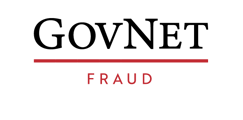In the intricate landscape of government operations, regulatory compliance is paramount. However, errors in understanding or interpreting regulations can inadvertently lead to non-compliance or even fraudulent activities. This blog post delves into instances where misinterpretation of regulations occurs within government agencies, emphasising the importance of clarity and training in regulatory compliance to uphold integrity and transparency.
The Impact of Misinterpretation
Misinterpretation of regulations can have far-reaching consequences for government operations, potentially resulting in non-compliance with legal requirements or inadvertently facilitating fraudulent activities. Errors in understanding complex regulatory frameworks may lead to incorrect reporting, improper documentation, or inadequate controls, creating vulnerabilities that could be exploited for fraudulent purposes.
Instances of Misinterpretation
Instances of misinterpretation of regulations within government operations can range from simple clerical errors to more significant misunderstandings of legal obligations. Examples include misclassifying expenses, misreporting financial data, or misapplying eligibility criteria for government programs, all of which may lead to compliance breaches or fraudulent practices.
Importance of Clarity and Training
Clarity in regulatory requirements and effective training are crucial for mitigating the risk of misinterpretation in government operations. Clear and concise regulations, coupled with comprehensive training programs for staff, help ensure that employees understand their obligations and responsibilities under the law. Regular training sessions, updates on regulatory changes, and access to guidance materials can enhance employees' knowledge and awareness of compliance requirements.
Strategies for Avoiding Misinterpretation
Government agencies can adopt several strategies to avoid misinterpretation of regulations and promote compliance. These include establishing robust internal controls and procedures, fostering a culture of compliance through leadership support and accountability, and providing ongoing training and guidance to employees. Regular reviews of policies and procedures, as well as consultations with legal experts or regulatory authorities, can also help clarify ambiguous regulatory requirements.
Collaboration and Information Sharing
Collaboration and information sharing among government agencies, industry stakeholders, and regulatory bodies play a vital role in addressing misinterpretation of regulations. By sharing insights, best practices, and lessons learned, government entities can collectively enhance their understanding of regulatory requirements and identify areas for improvement in compliance practices.
Conclusion
Misinterpretation of regulations poses significant challenges for government operations, potentially leading to non-compliance and fraudulent activities. By prioritising clarity and training in regulatory compliance, government agencies can mitigate the risk of misinterpretation and uphold integrity and transparency in their operations. Through clear communication, effective training programs, and collaboration with stakeholders, government entities can navigate complex regulatory landscapes with confidence and ensure adherence to legal requirements.

Nicole Lummis
After a career in Project Management, I realised how important it was for me to pursue a career with a more creative career path. I have a passion for creating engaging digital content whether through written content or the use of image, graphics or videos.




